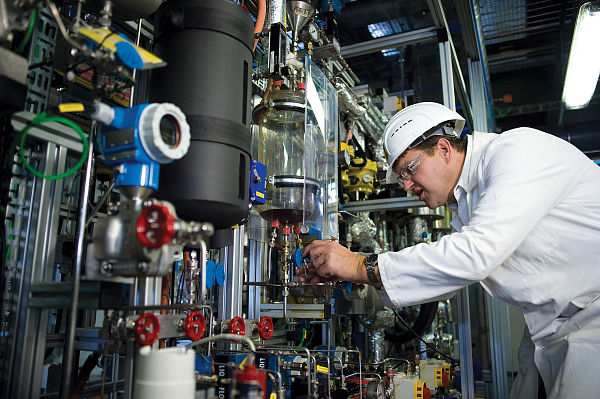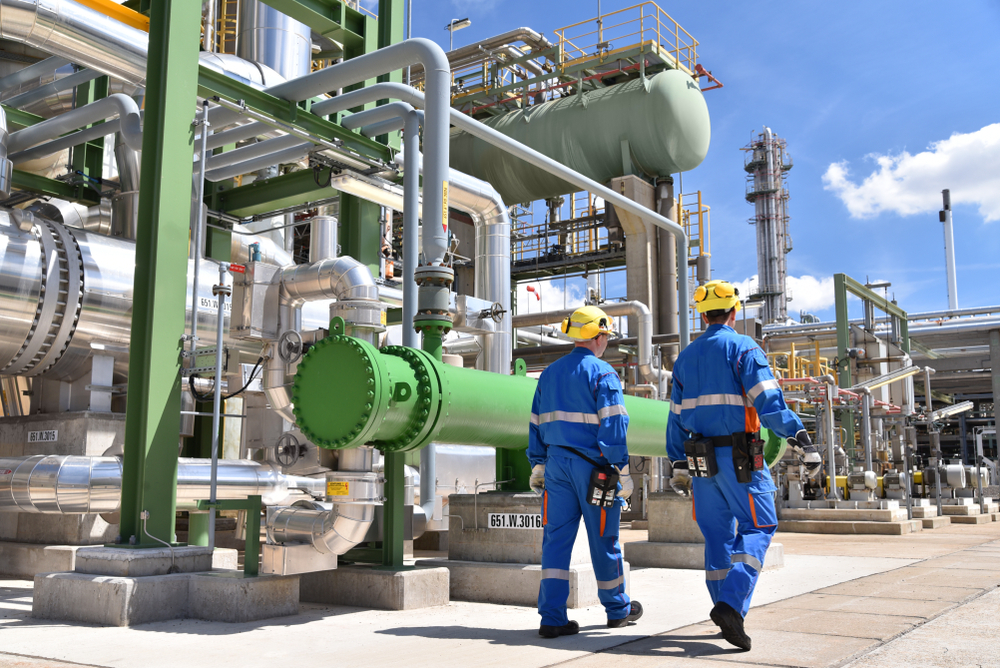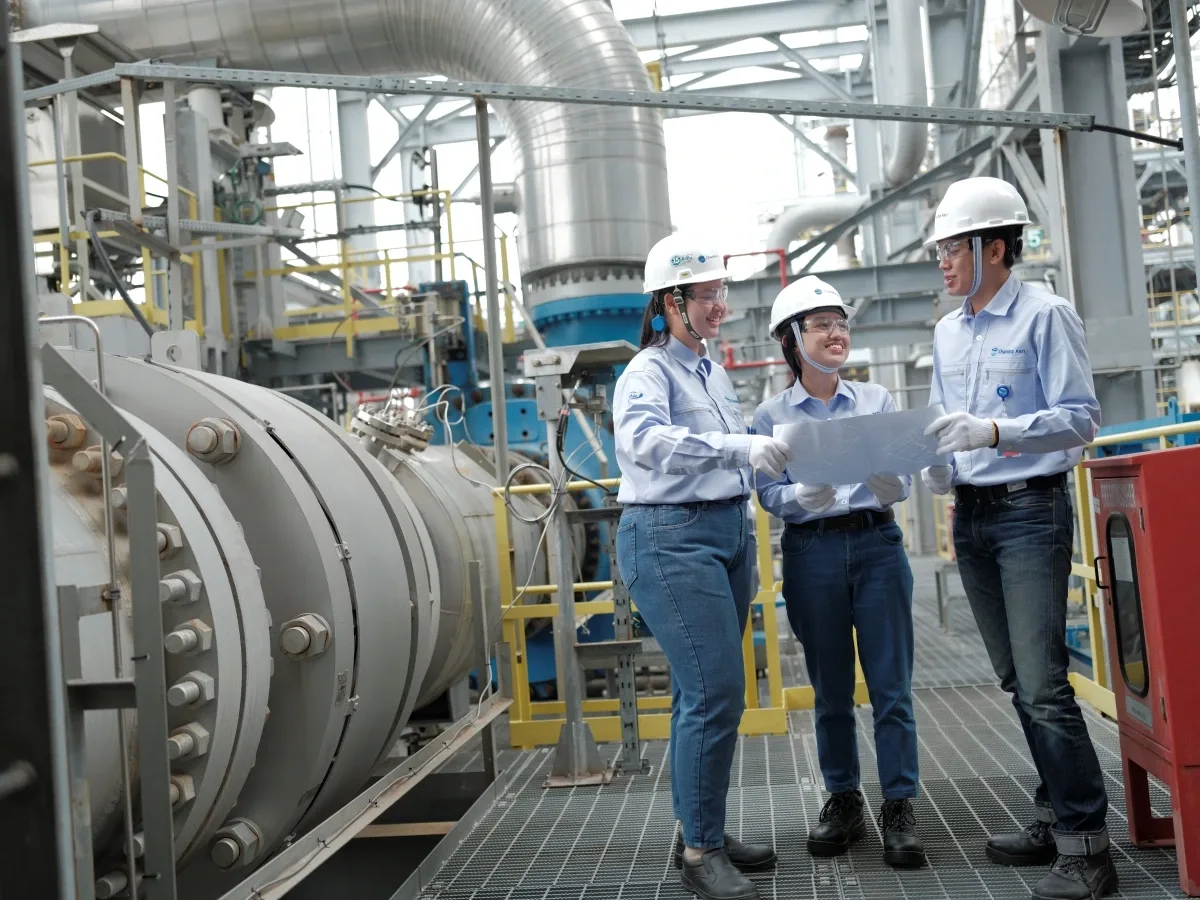Chemical Industry
Information About Chemical Industry
The chemical industry is a huge sector that includes all kinds of businesses that produce goods and whose production is heavily dependent on chemicals. Industries that produce industrial chemicals are frequently referred to as the chemical industry.Companies that manufacture industrial chemicals are included in the chemical industry.Small and medium-sized businesses in the domestic chemicals sector are anticipated to post 18–23% revenue growth in FY22, thanks to improved domestic demand and higher realisation as a result of high chemical prices.The chemical industry is a huge sector that includes all kinds of businesses that produce goods and whose production is heavily dependent on chemicals. Industries that produce industrial chemicals are frequently referred to as the chemical industry.
What is the future of Chemical Industry
Chemical industry businesses transform minerals, metals, and other raw materials into finished goods. Although chemicals have been utilised and processed throughout history, large-scale chemical production did not start until the industrial revolution. Chemical industry employers include, but are not limited to, chemical engineers, chemists, and lab technicians.The production of chemicals is crucial to modern life. Today, practically every product you use contains manufactured chemicals, from your toothpaste to your nylon jacket, your ballpoint pen to your cell phone. Manufactured chemicals have fully permeated our lives. This page is all about the chemical industry, which is a word used to describe the businesses that produce and refine the chemicals that go into the making of the goods we use every day.There are numerous difficulties facing the chemical industry. Some of these issues are brought on by how dangerous the chemicals being used are. To prevent harm to the environment or to humans, hazardous chemicals must be handled safely and disposed of in a certain manner. An important factor for the chemical industry is to ensure the safety of workers who make chemicals. A crucial chemical process called alkylation is utilised to move an alkyl group from one molecule to another. Alkylation is a process that transforms low molecular weight substances like isobutane into high octane petrol molecules.
What does the Chemical Industry Make
Industry can produce three different types of chemicals: fine, bulk, and specialty chemicals. Chemicals that are produced in vast quantities are referred to as bulk chemicals. Bulk chemicals known as commodity chemicals are produced to satisfy the demands of international markets. Polymers, petrochemicals, and fertilisers are just a few of the numerous chemicals and products that the bulk chemicals business produces. Chemicals are produced and processed in very large vessels at bulk chemical plants.Complex pure compounds known as “fine chemicals” are created in limited quantities and sell for a premium price. They are created to a specific specification and utilised to create products through various chemical processes. Organic synthesis is frequently used to produce fine compounds. A sequence of chemical reactions utilising carbon-based compounds are carried out in a lab as part of an organic synthesis to create a molecule or compound. Biotechnological processes can also be used to create fine compounds. This entails using living things to create chemicals. A common starting point for the production of additional chemicals is fine chemicals. Speciality chemicals are a particular class of chemical that are produced in batch procedures on relatively modest sizes.
To sum up, the chemical industry’s function is to produce chemicals for numerous applications. Chemicals can be produced in three different categories: bulk, fine, and specialty. There are various uses for various types of chemicals.
Challenges faced by the Chemicals Industry
There are numerous difficulties facing the chemical industry. Some of these issues are brought on by how dangerous the chemicals being used are. To prevent harm to the environment or to humans, hazardous chemicals must be handled safely and disposed of in a certain manner. The dangers involved in producing chemicals present another difficulty for the chemical industry. Chemical engineers and plant workers must continuously monitor and regulate the conditions inside reactor vessels. Because accidents and disasters can occur, the manufacturing of chemicals is closely watched and regulated by organisations like the UK’s Health and Safety Executive. Another element of chemical manufacturing that needs to be watched over is the appropriate disposal of chemical waste.
Applications
Heating and Cooling Reactors
Chemical processing often runs in a cyclic phase. Chemical reactors must go through phases where they must be heated and phases where they must be cooled. Almost all processing operations, from raw materials to final goods, have such varying demand. A key component in fulfilling this requirement is steam.
Our expertise in the field
On the other hand, when a procedure calls for cooling chemical reactors, steam boilers must be shut off or their steam output reduced. Therefore, for optimal productivity, it is advised by top boiler manufacturers to guarantee the resilience of the boilers that can successfully handle the shifting demands throughout chemical processing activities.

Disinfecting and Sterilizing
To guarantee the high quality and accuracy of the chemical components, chemical processing necessitates, in addition to the heating and cooling of reactors, routine disinfection and sterilisation of the plant and the equipment used throughout the operations. Steam is required for thorough cleaning and disinfection of the process plants.
Our expertise in the field
Steam boilers are essential in chemical processes, but they are not without their share of difficulties. Chemical plants need to heat and cool the system in order to carry out the chemical reaction, as was previously indicated. As a result, the load and steam demand fluctuate quickly, which has an impact on the steam boiler’s operational cycle and efficiency.

Waste Heat Recovery Boilers
We know that the chemical industry produces a lot of waste heat, so a waste heat recovery boiler is the best boiler for chemical facilities. In order to ensure optimal use of heat energy and prevent hazardous emissions into the environment, the system would recover excess heat and reuse it for other process activities or power generation.
Our expertise in the field
Numerous chemical process companies like and rely on the steam boilers that Rakhoh Boilers makes because of their great efficiency and dependability. Many chemical plants select Rakhoh’s Optipac and Waste Heat Recovery Boiler as their boiler of choice.


A strategic choice for increasing the performance of chemical processes
Pressure size is used in many purposes in chemical methods (distillation columns, reactors, separators etc.). These purposes are characterized by using very extensive temperature and stress levels and function in especially corrosive environments (chlorine, hydrochloric acid, sulfuric acid etc.).
Real-time level, drift or density records is received throughout absolute, relative or differential stress measurements. The fantastic reliability and measuring accuracy of our gear will enlarge the overall performance of your method to make sure most availability.
The enchantment of installations approves you to optimize the strength and uncooked cloth consumption, thanks to unique size equipment tailored to your processes. The overall performance got generates a big and no longer insignificant reap in running and funding costs.
Need a Consultation? Contact Us 24/7
Innovative Test & Measurement Solutions for Market Leadership




